By Francie Fink
This story is part of a series on partnerships developed by the Midwest Big Data Innovation Hub with institutions across the Midwest through the Community Development and Engagement (CDE) Program.
South Bend, Indiana, is no stranger to environmental challenges: more dangerously hot days than ever before and worsening storms of all types. But South Bend also stands out amongst peer cities as a leader in climate action. As South Benders and city leaders work to adapt to the realities of a changing climate, the attention is turning to another critical resource, one that is quite literally a lifeline to residents: water. In a region practically defined by its proximity to the St. Joseph River and its watershed, water quality is a priority. South Bend, in particular, is on the national stage with its extensive, groundbreaking wastewater and stormwater network.
The St. Joseph River has been enormously influential to Northern Indiana’s history. Flowing over 200 miles from southern Michigan to Lake Michigan, the river has been a source of nourishment, transportation, and economic development for centuries. Indigenous peoples, including the Miami and Potawatomi, established villages along its banks, relying on it for fishing, agriculture, and trade. With the arrival of French explorers in the 17th century, the river became a key route for fur trading and westward expansion. Later, cities like South Bend flourished along its shores, using its power for milling, manufacturing, and transportation. Today, the St. Joseph River remains a vital part of the region’s history, recreation, and conservation efforts.

Pictured: View from the East Race walking path on the St. Joseph River in South Bend
Academics may think about water quality in a very technical and traditional way. What’s its pH? What types of and how many insects are in the water? What’s the average temperature during the four different seasons? Policymakers and advocates, though, may think about it in a slightly different, perhaps more holistic way. In St. Joseph County, sustainability leaders and those at the St. Joseph River Basin Commission (SJRBC) think about water quality as part of a broader hydrological, ecological, and human system. They might care more about personal health and safety because, quite frankly, that’s what residents care about.
SJRBC has served as the primary river conservation, management, and water-quality-improvement-focused body for the St. Joseph River for almost four decades. Established by the Indiana General Assembly, the SJRBC provides essential governance and services to a watershed that drains 4,682 square miles between two states (both Indiana and Michigan) to Lake Michigan. Day-to-day, the Commission works on a mix of projects, from technical assistance and watershed expertise to demonstration projects and coordination between local governments.
The public cares about visible indicators. For one, they’d like their water to look like water that they might typically drink out of a purchased bottle or swim in. The appearance of water in a river like the St. Joe might allude to more pressing concerns. If someone was to fish or swim in the water, would they be okay? That is to say, would chemical contaminants give them a bacterial infection? Or, could harmful algal blooms trigger rashes or even liver damage?
In short, as Barbara Dale, Project Manager in the city’s Office of Sustainability, says, “We want drinkable, fishable, swimmable water.”
Dr. Kate Barrett is an aquatic ecologist and Assistant Professor of Biology at Holy Cross College. Barrett has been working with the City of South Bend Office of Sustainability and other towns within the watershed for a couple of years to try and come up with a cohesive answer to one question they often get from residents: “How’s the water?” SJRBC has some great year-to-year data on water quality through water sampling but they, like the South Bend Office of Sustainability, haven’t yet had the capacity to develop a public-education campaign.
Building on the success of Sense South Bend: Air Quality—the first in a novel series of environmental health initiatives—the City of South Bend launched their next ambitious project in September 2024: Sense South Bend: Water Quality. This time, the City of South Bend partnered with SJRBC. The Sense South Bend initiative, as a whole, is designed to empower the community by tracking critical environmental indicators, such as air and water quality, mobility, and extreme heat. By turning complex data into easily understandable metrics, the initiative aims to inform and inspire action, fostering a healthier, more resilient South Bend.
Like Sense South Bend: Air Quality, the Sense South Bend: Water Quality campaign focuses on effectively communicating critical environmental data in a way that is both accessible and actionable for residents. This initiative will delve into the historical water-quality trends of the St. Joseph River and its expansive watershed, painting a clear picture of how the region’s waterways have evolved over time. By combining these historical insights with a detailed characterization of the river’s current state, the campaign aims to provide residents with a comprehensive understanding of their local water resources through simple visualizations and a cohesive narrative.
South Bend has creatively tackled its environmental-health campaign by partnering with the Midwest Big Data Innovation Hub (MBDH) to support graduate students on experiential-learning science-communication projects. In spring 2024, South Bend hosted a Graduate Environmental Health Fellow for the Sense South Bend: Air Quality project. Two more Environmental Health Fellows (EHFs) were onboarded in Fall 2024 to develop a roadmap for Sense South Bend: Water Quality. Samantha Rothman and Caroline Corona, Master of Public Affairs graduate students at the University of Wisconsin–Madison (UW–Madison), were brought on to learn more about science communication and, in the process, generate recommendations for a water-quality education campaign that the City of South Bend and SJRBC can implement.
The Fellows’ involvement with South Bend began as a learning and mentorship experience. During their first year in the graduate program at UW–Madison, Rothman and Corona developed an interest in the intersection of science communication, data analysis, and environmental issues. Eager to apply their coursework to real-world challenges, they engaged in informational interviews with South Bend experts and explored the current state of the St. Joseph River.
For Corona, the opportunity to put her Life Sciences Communication studies into practice was invaluable. “This experience has bridged the gap between theory and practice, showing us how effectively communicating key data points can foster public understanding of shared resources.”
The Fellows benefited from mentorship by local government leaders in the City of South Bend Office of Sustainability and water-quality experts from organizations such as the SJRBC and local universities. Rothman and Corona also examined existing resources, including watershed boundaries, public-communication efforts, and key water-quality indicators such as dissolved oxygen, macroinvertebrate life, and turbidity.
With a solid understanding of South Bend’s water systems, the Fellows turned to best-practice research. They investigated how other cities communicate water-quality data to residents, reviewing municipal websites, media releases, and outreach campaigns. Their analysis identified common strategies used to inform the public about water conditions, including stormwater runoff volume, clarity, and chlorophyll content.
In January 2025, Rothman and Corona presented their findings to the City of South Bend Office of Sustainability and the Department of Innovation and Technology, along with the SJRBC. They also compiled a comprehensive research report (pdf) for stakeholders involved in the Sense South Bend (SenseSB) initiative, outlining key insights and actionable recommendations.
Two central themes emerged from their research. First, the health of the St. Joseph River Basin has improved dramatically over the past several decades. Once considered “dead,” the river is now clear and thriving. Second, the watershed is a vital resource, serving economic, agricultural, residential, and recreational needs, while providing drinking water to 1.5 million people.
Based on their findings, the Fellows proposed four potential communication strategies for the City of South Bend:
- Interactive Dashboard – A digital platform displaying real-time water-quality data based on regular sampling
- Annual Report Card – A simplified grading system to help the public understand water-quality trends
- Historical Timeline – A visual representation of the river basin’s history, cultural significance, and environmental progress
- Arts Campaign – A creative initiative, inviting local artists to celebrate the health of the St. Joseph River and its waterways.
Each proposal included a summary, resource requirements, and case studies from other cities.
Patrick McGuire, South Bend’s Director of Innovation and Technology, emphasized the importance of the Fellows’ contributions to the SenseSB project. “A community identity built around ecological systems already exists in South Bend, and we can capitalize on that in communications and outreach.” McGuire and Dale were particularly drawn to the idea of a water-quality “report card,” recognizing its potential as a simple, yet highly effective, public-engagement tool.
Reflecting on their experience, the Fellows noted that transparent communication of environmental data is becoming increasingly critical for cities across the USA. “It was fascinating to see how different cities conveyed baseline information on fishability and swimability. Each approached water-quality communication with a different level of effort,” said Rothman.
Corona highlighted South Bend’s unique opportunity to share its environmental-success stories. “The number of fish species in the St. Joseph River has increased, thanks in part to reintroduction efforts. There’s an incredible opportunity to communicate that progress.”
With the Fellows’ research in hand, the City of South Bend is now prepared to implement one or more of the proposed communication strategies as part of SenseSB: Water Quality, further strengthening public engagement with the region’s waterways.
Learn More/Get Involved:
Stay tuned for water-quality updates to the City of South Bend’s SenseSB website. Visit SJRBC’s site to learn more about the St. Joseph River Basin Commission’s role in protecting and managing the watershed.
Contact the Midwest Big Data Innovation Hub to learn more about other Community Development and Engagement projects we’ve supported. The Midwest Big Data Innovation Hub is an NSF-funded partnership of the University of Illinois at Urbana-Champaign, Indiana University, Iowa State University, the University of Michigan, the University of Minnesota, and the University of North Dakota, and is focused on developing collaborations in the 12-state Midwest region. Learn more about the national NSF Big Data Hubs community.


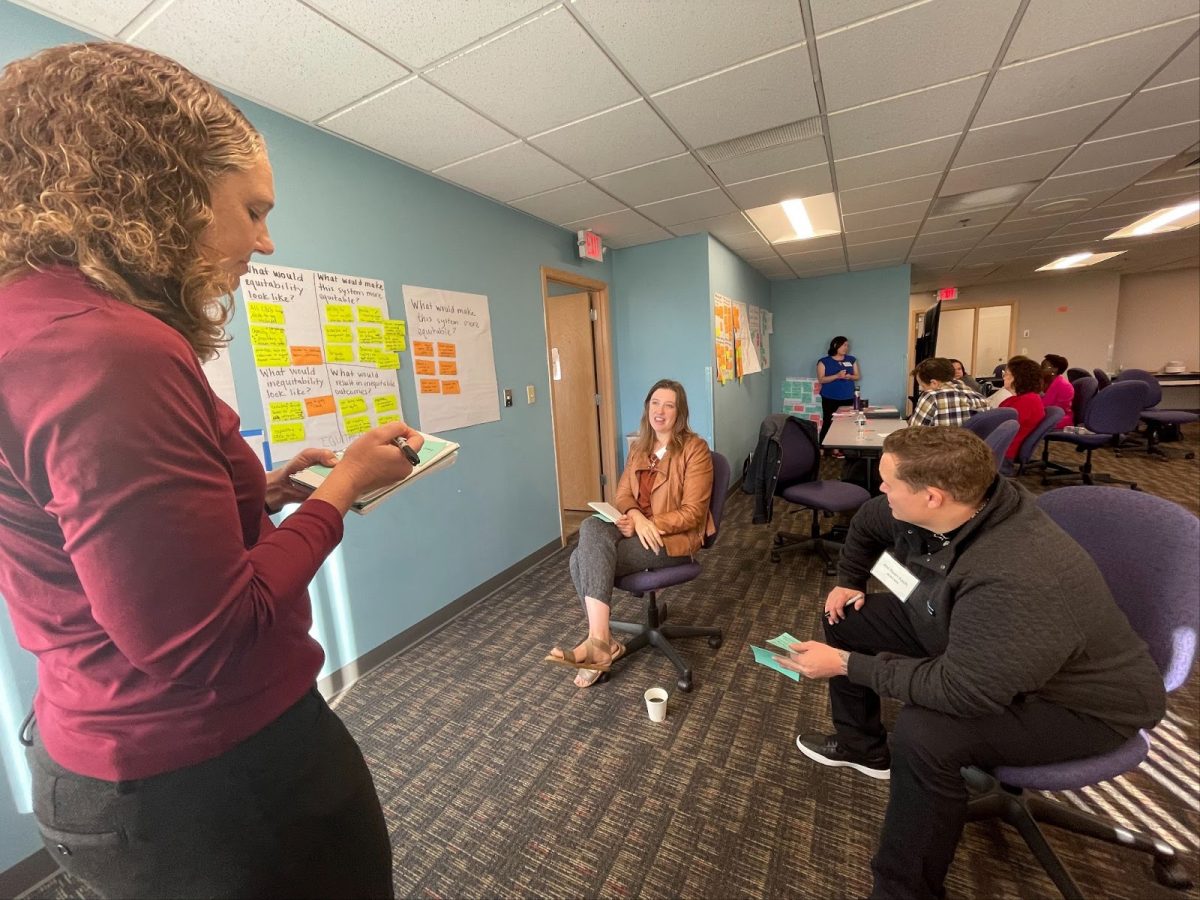
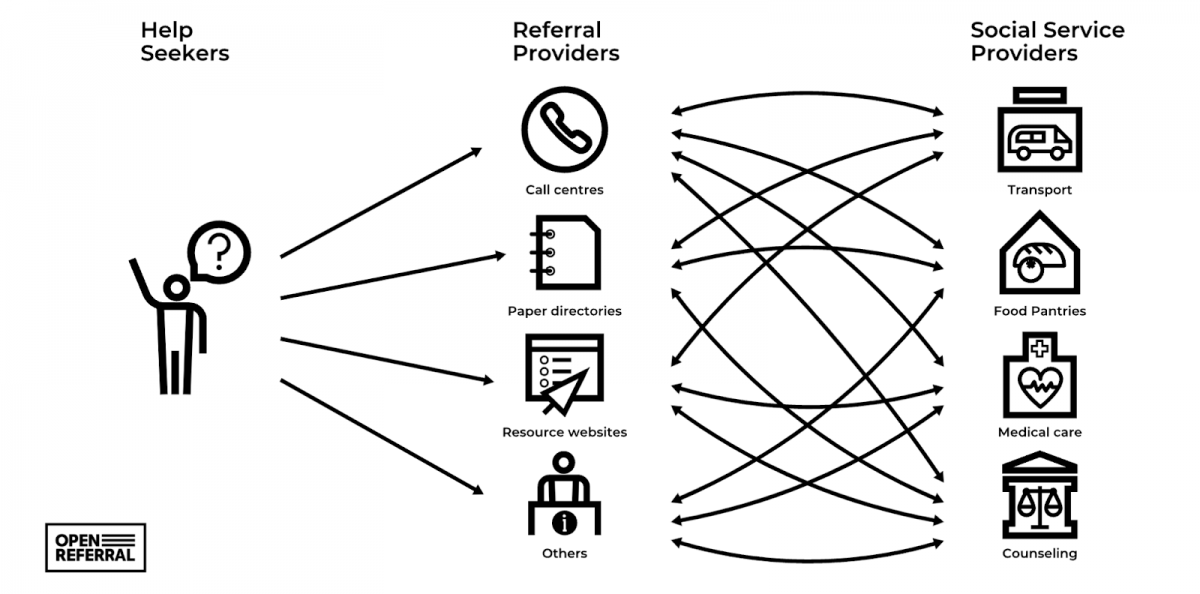
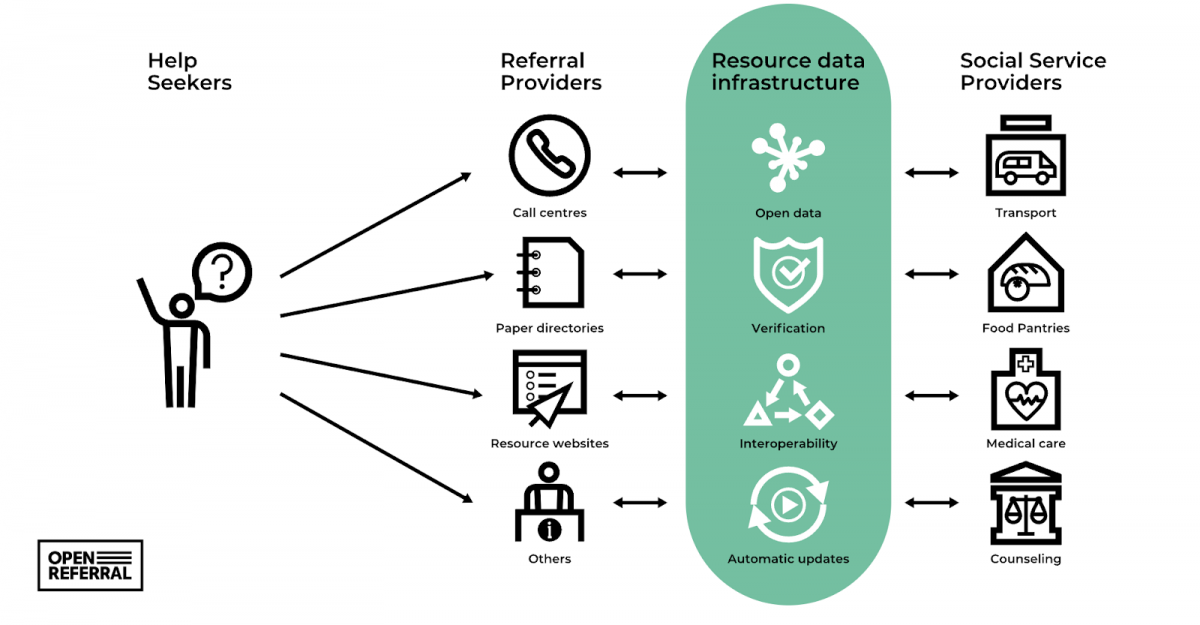
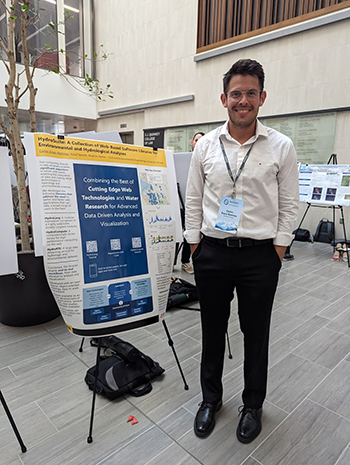
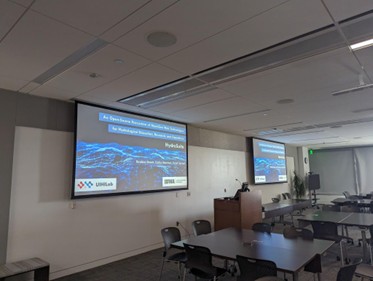
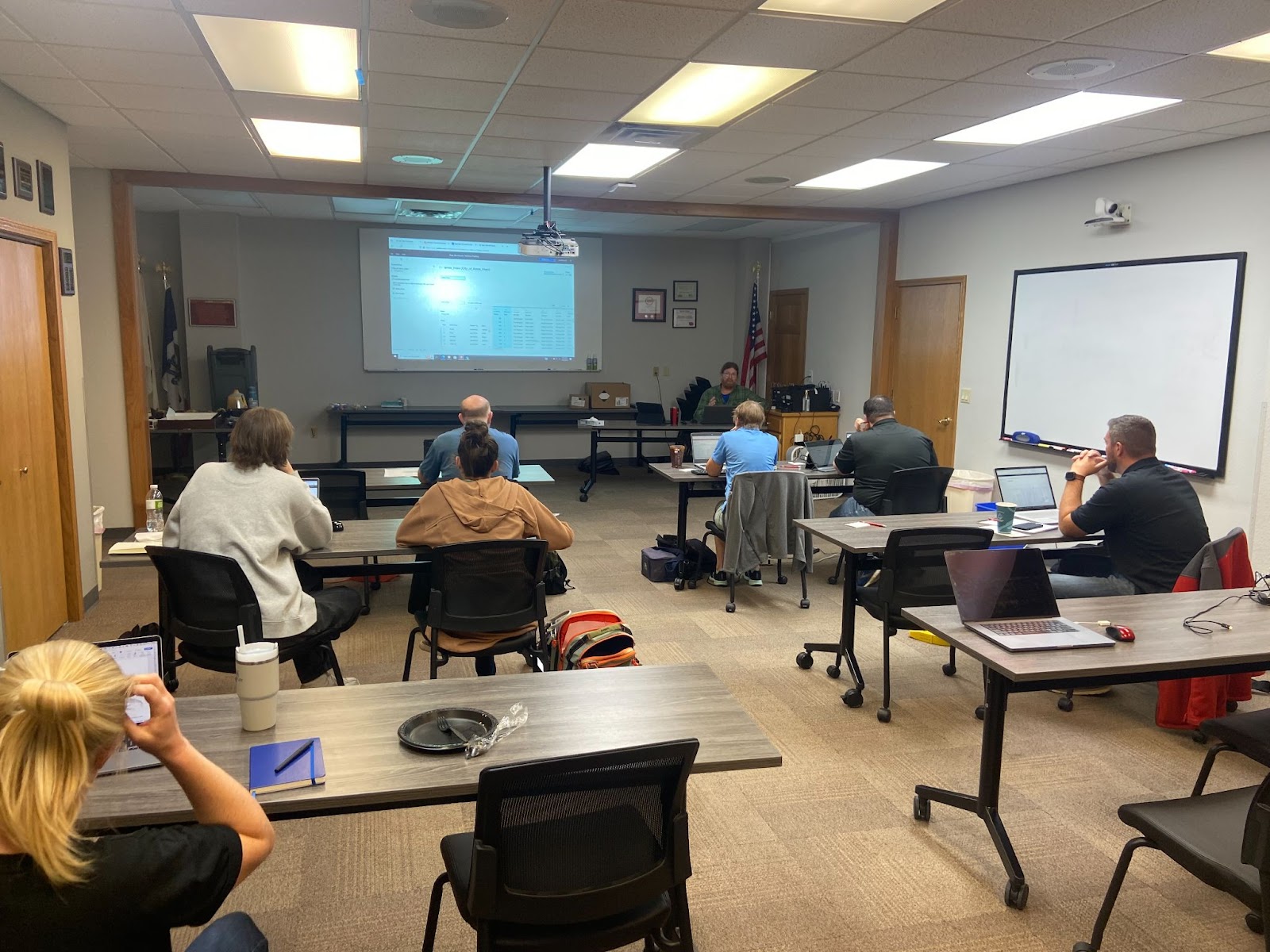
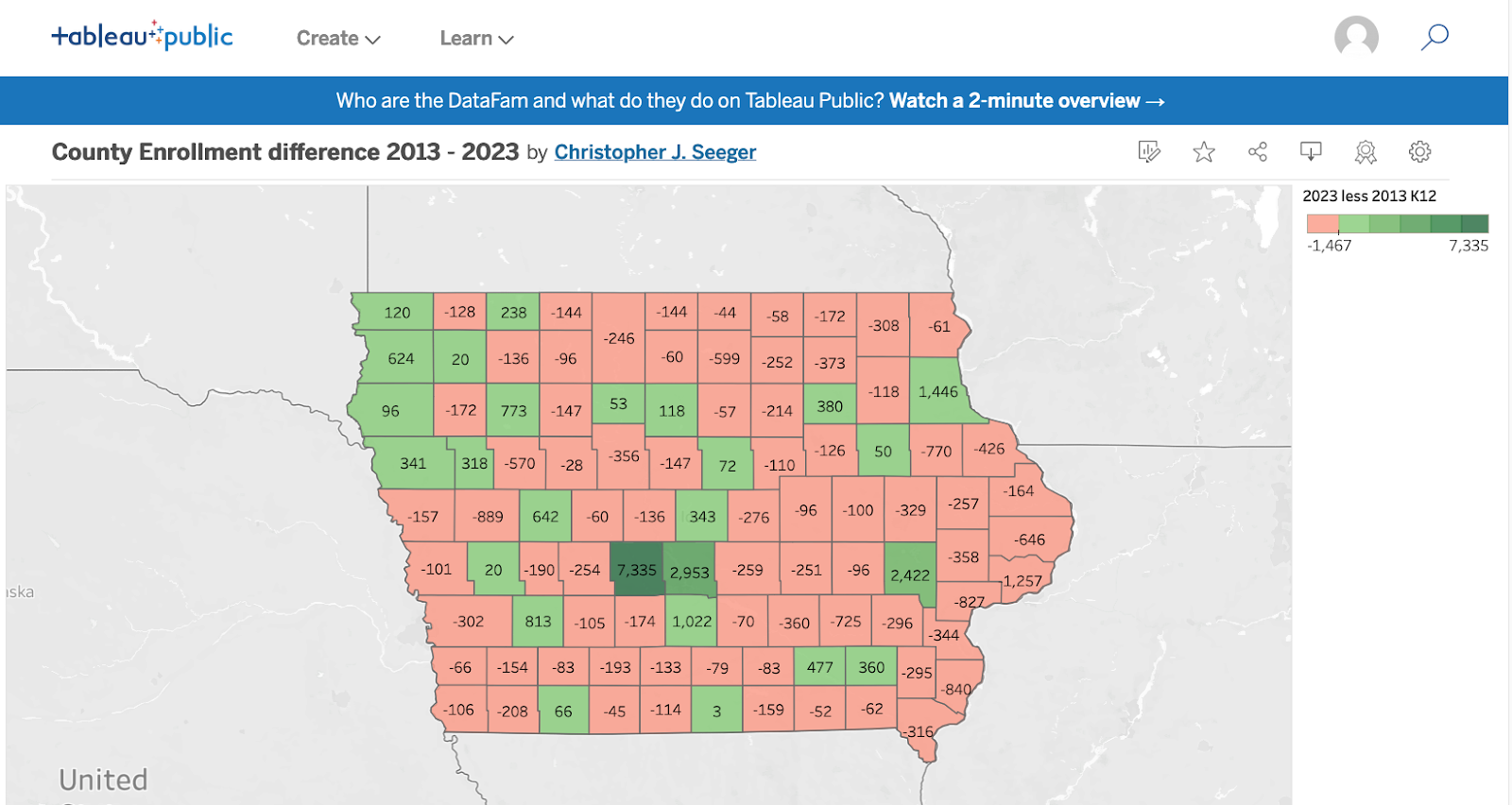
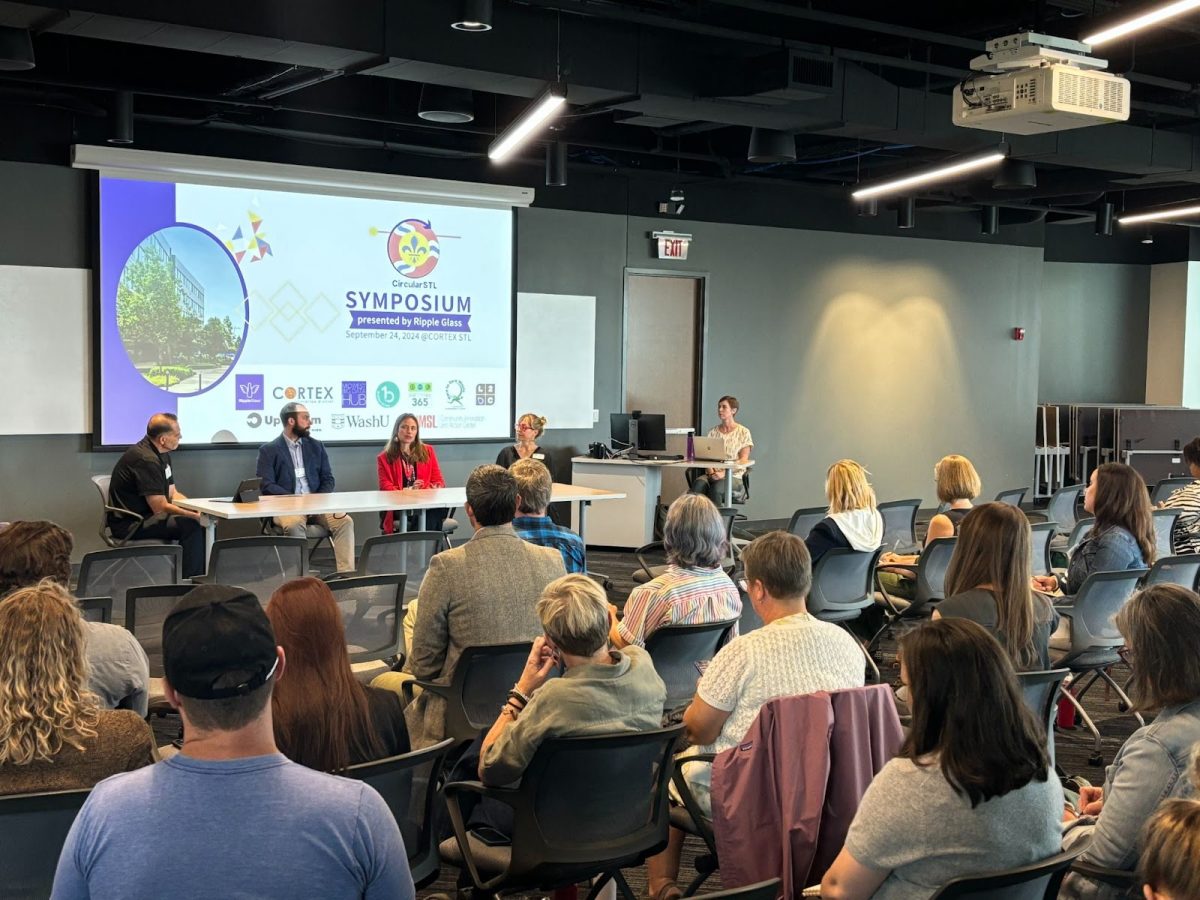
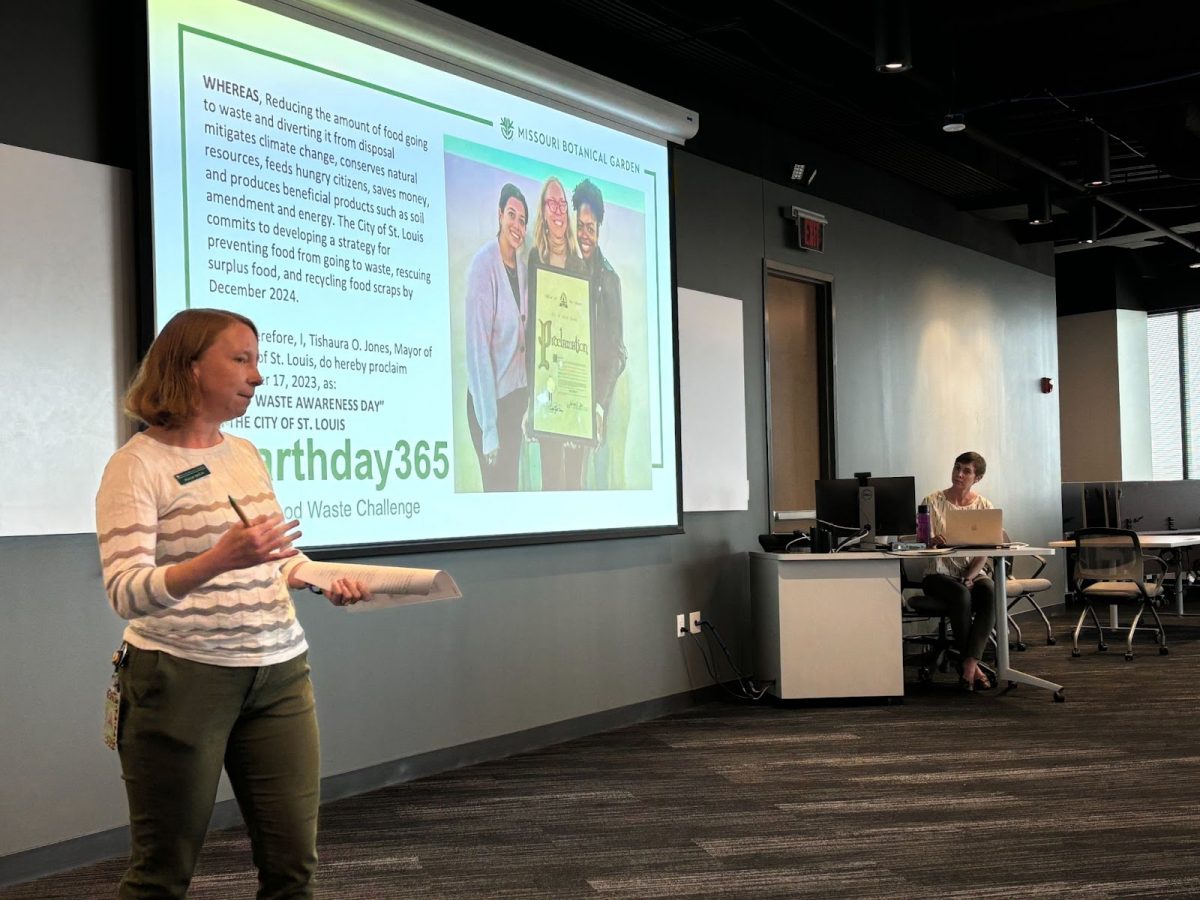

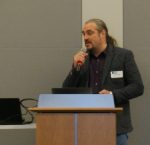
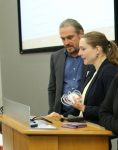
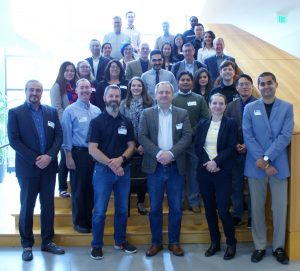
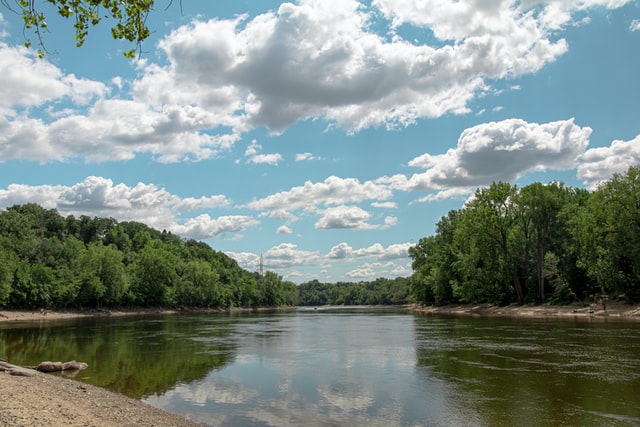
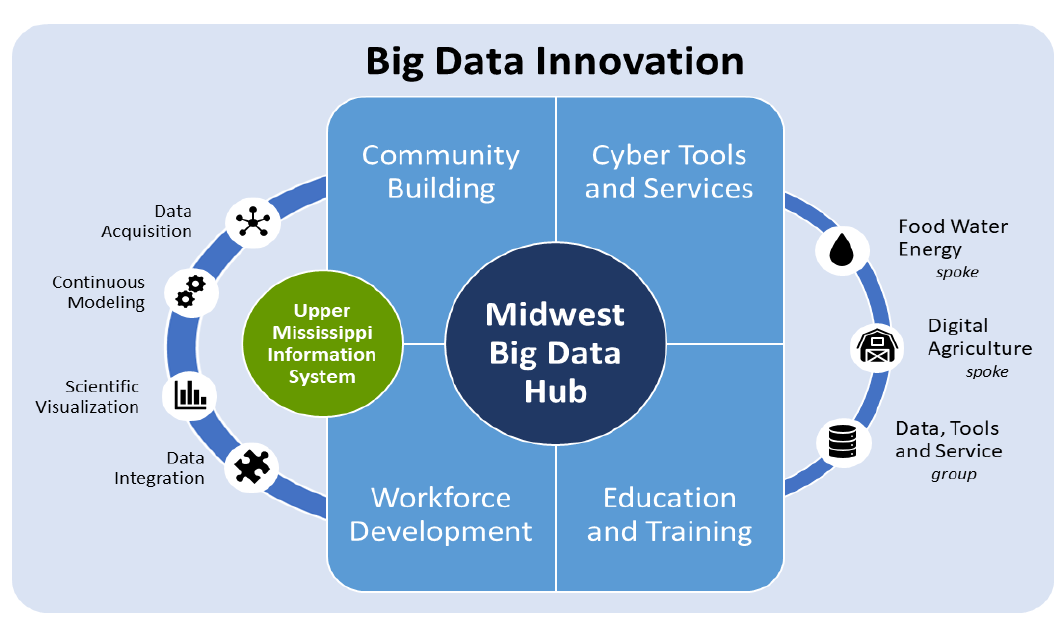

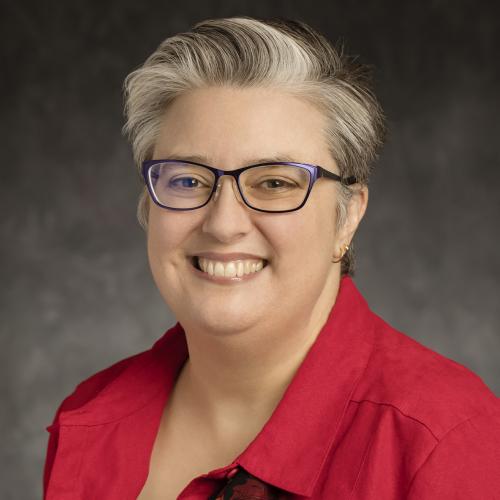
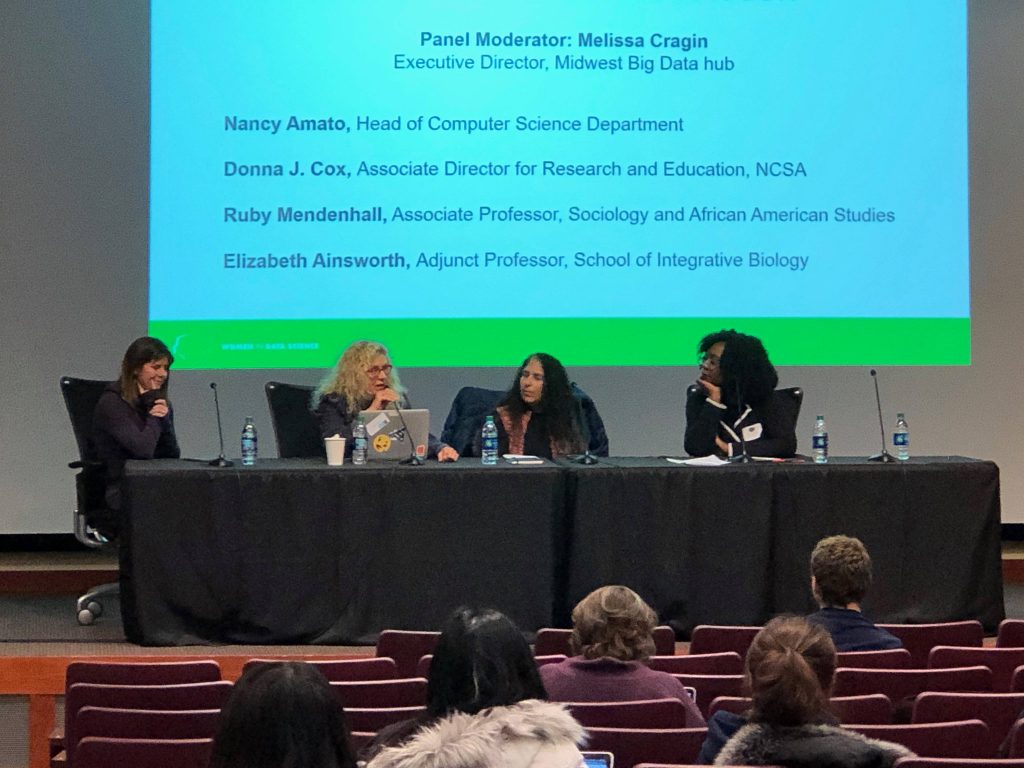
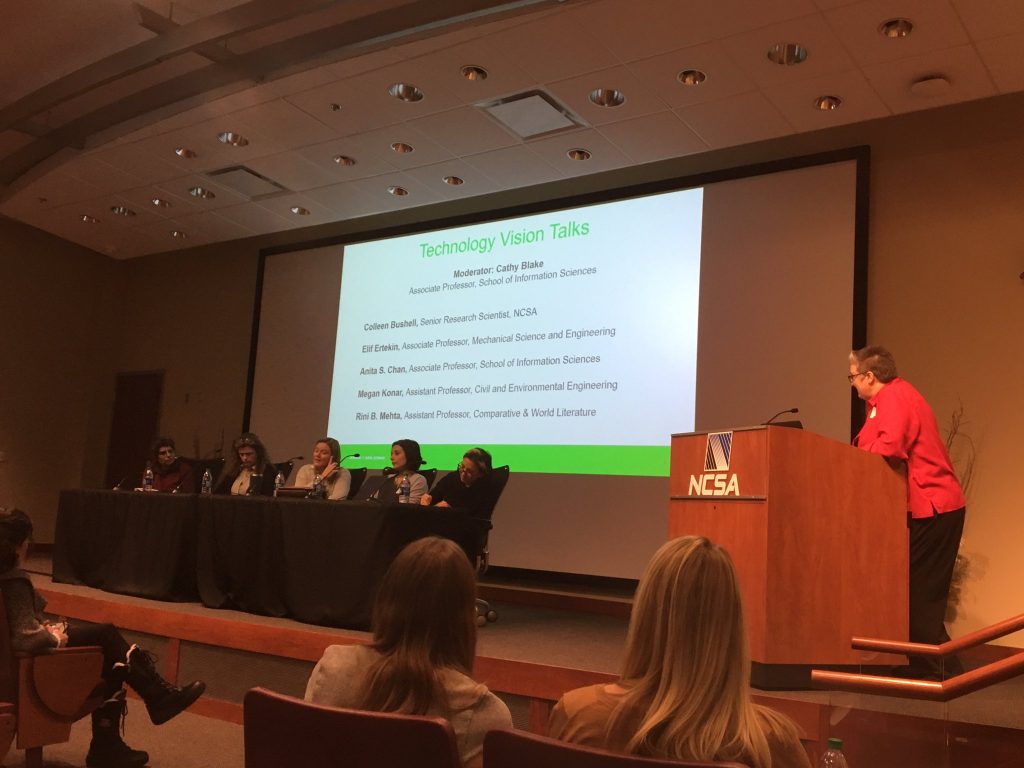
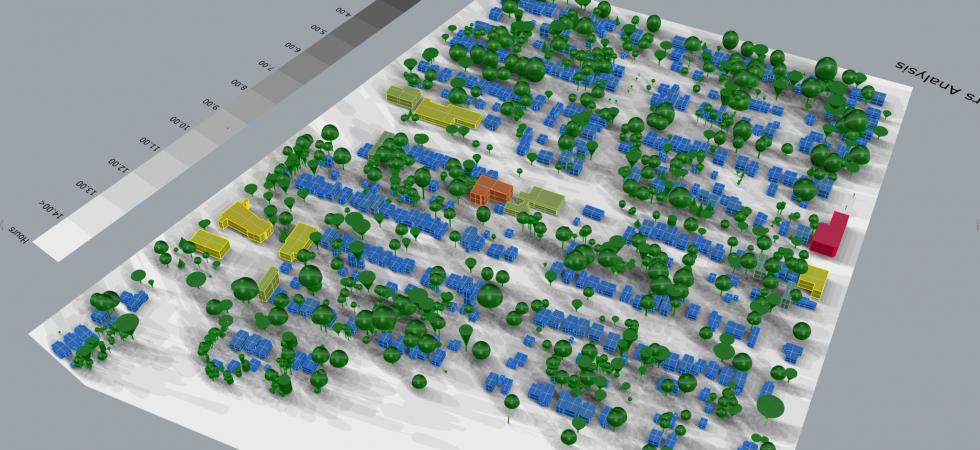
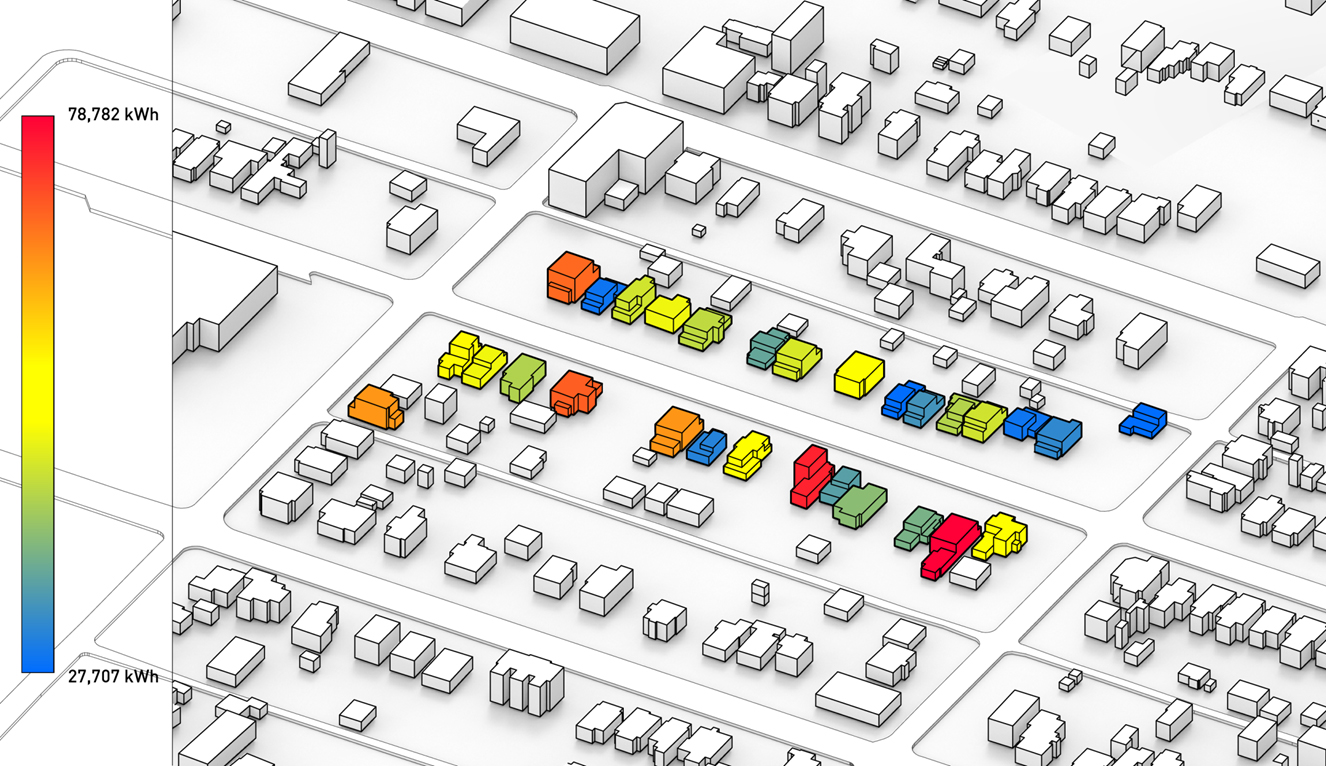
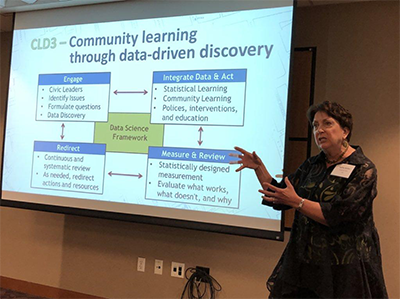
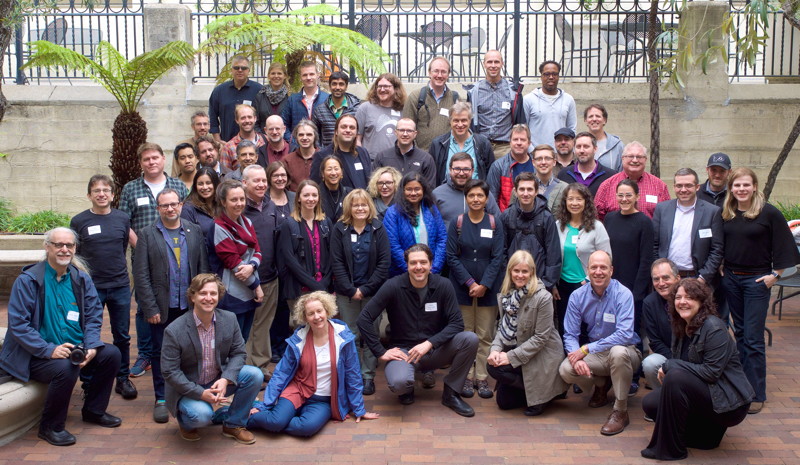


 Photo credit: Chungwook Sim
Photo credit: Chungwook Sim
